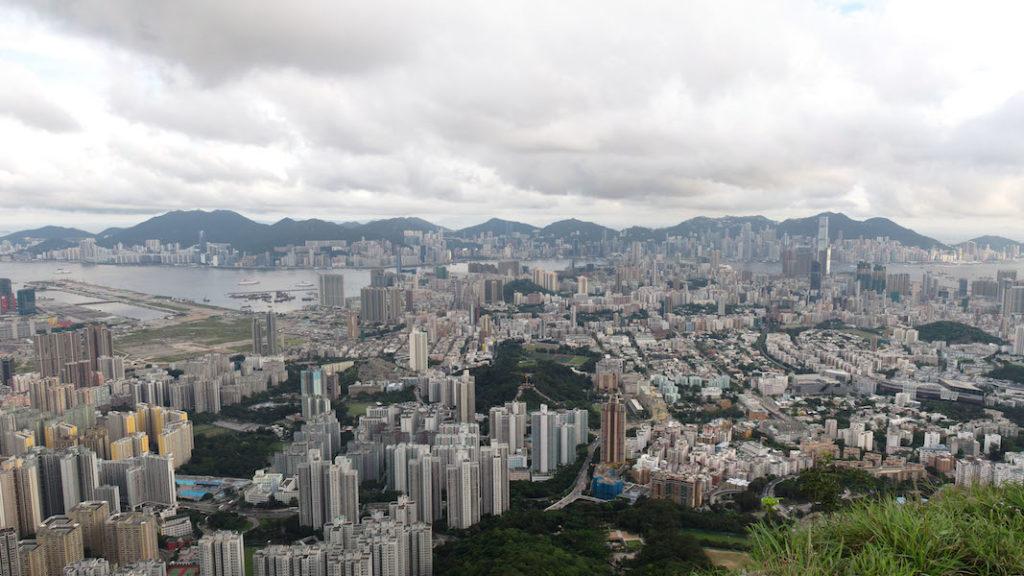Boston College’s Office of International Programs (OIP) has decided to close all three programs in Hong Kong for the fall semester and instructed its students to return home in the wake of ongoing civil unrest in the region. OIP has also terminated the upcoming Spring 2020 programs, offering students alternative programs elsewhere or simply a return to BC. Summer internship programs in Hong Kong through OIP were also canceled.
The three partner universities in Hong Kong that will be affected by the decision are Hong Kong University, Chinese University of Hong Kong, and Hong Kong University of Science and Technology, according to Nick Gozik, director of OIP. Other American universities, including Georgetown University, Syracuse University, Cornell University, and the University of California system, have decided to terminate their programs in the region.
“We monitor health and safety incidents around the world on a daily basis, receiving information from the U.S. Department of State, risk management professionals, news reports, colleagues at other universities, and on-the-ground staff,” said Gozik in an email to The Heights. “In addition to political activities, we are monitoring a number of potential risks, including health concerns and natural disasters.”
This past June, hundreds of thousands of protestors began taking to the streets in Hong Kong in protest of a bill that would have allowed extraditions to the Chinese mainland, subjecting Hong Kong’s citizens to the Chinese legal system. Clashes between the protestors and police have intensified as the demands of the protestors have increased—moving from just withdrawal of the extradition bill to less Chinese control of Hong Kong.
“When we do have to cancel a program and students will be impacted, the options that we can provide depend much on timing,” Gozik said. “For the students who were planning on going to Hong Kong in spring 2020, we gave students a list of programs that were available,” Gozik said.
These programs included universities that still had open spots, and OIP took into account countries where students would have had enough time to go through the visa process before the start of the program, Gozik said.
“We always try to find alternatives that align with what would have been offered through the canceled program,” Gozik added. “If a student decides not to go abroad at all, we respect their decision, and help them reintegrate back into BC.”
Jack Phelan, MCAS ’20, who applied to work abroad in Hong Kong last year and was subsequently placed in a job with an insurance company, spent this past summer in the city. He spoke of his encounters with the protestors, which were, in his experience, largely peaceful and nondisruptive.
“It was definitely a noticeable presence, as we would have to walk through an army of people … to get where we were going,” said Phelan. “From what my friends and I could tell, it was entirely peaceful. We were never near the ‘incidents’ that the media would later label as acts of rioting.
“We didn’t feel threatened by them and would even sometimes ask them for directions.”
While Phelan couldn’t comment on OIP’s decision to cancel the programs, he encouraged students to pursue going abroad to Hong Kong.
“I’d really recommend it, as you get a totally different experience of the world in Asia as opposed to visiting Europe,” Pheland said. “A chance to go abroad to Hong Kong seems like a rarer opportunity than visiting London or Germany.”
The decision to cancel or alter a program is rare, but must be done as needed, Gozik said.
“Since I have been at Boston College (now 7.5 years), we have been forced to cancel a handful of programs due to health and safety risks, including in Turkey, Japan, Israel, Lebanon, Egypt, and El Salvador,” said Gozik. “Most of the time we have been able to make a decision early enough so that students do not select one of these programs during the application stage and thus do not need to be relocated to another program. Hong Kong was different in that the protests began in June 2019, well after students applied.”
Each situation must be considered by OIP on a case by case basis, said Gozik. Much of the decision comes down to the location and nature of a given event. An event taking place hundreds of miles away may have little effect on BC students abroad, said Gozik.
“Protests alone are not normally a reason to cancel a program. … When our students are in direct danger, we are quick to act. Our first goal is to ensure students’ safety,” Gozik said.
“We would be very happy to reopen our programs in Hong Kong,” Gozik added. “Students have had wonderful experiences there, which have led to great personal, academic, and professional development.”
Featured Image Courtesy of Lichunngai / Wikimedia Commons



















